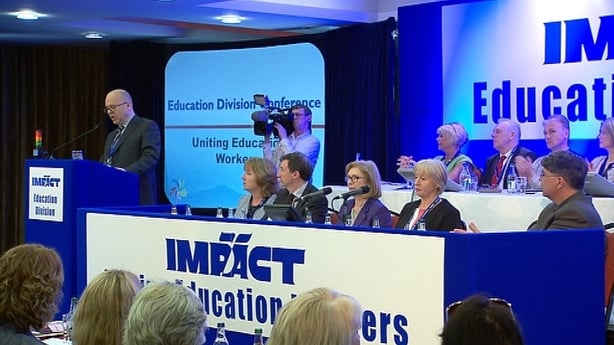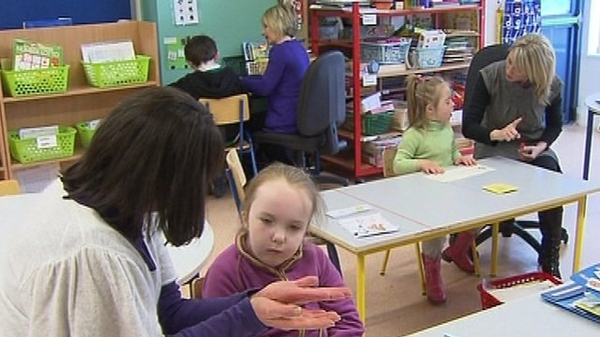The difficulties involved in the talks on restoring public service pay cuts should not be underestimated, according to the Minister for Education and Skills.
Jan O'Sullivan made the comments at the IMPACT Education division conference in Galway.
The division represents staff including school secretaries, special needs assistants, caretakers, workers in school-completion programmes, and others in the higher-education sector.
The minister said the Government acknowledged that the financial emergency legislation known as FEMPI had delivered savings of €2.2bn a year for the Government through pay cuts and reforms.
However, she warned that the Government was continuing to borrow to fund day-to-day spending.
She noted that pay rises were back on the table in the public and private sectors, but said the Government could not afford to revisit the mistakes of the past.
Ms O’Sullivan said the aim for Government must be a sustainable public service pay policy to support ongoing economic recovery over the next few years.
She hoped that all sides could meet at the upcoming talks with the aim of reaching an agreement that would be fair and deliver for the employer, the public service workers and those dependent on public services.
She told the conference that all workers, including public service employees, had benefited from changes to tax and USC.
She noted that many members were on low pay and said Government proposals to address the national minimum wage through the Low Pay Commission, the reintroduction of Registered Employment Agreements and action on zero and low-hour contracts would improve the situation of lower-paid staff.
The minister acknowledged that special needs assistants had recently voted to take industrial action over their precarious pay, hours and contracts.
She said it was unacceptable that SNA posts were becoming fragmented, making it harder for people to secure decent hours each week.
She said she had started a negotiation and consultation process on the issue to start putting in place a solution to address the union's concerns, which she shared, about the hours worked by SNAs and the wages they earn.

Delegates applauded when she said that what the Dunnes Stores workers were seeking was perfectly reasonable.
Her wide-ranging speech also addressed broader educational issues, including apprenticeships, technological universities and Education and Training Boards.
Ms O’Sullivan later described comments by an ASTI delegate that she would go on hunger strike rather than assess her own students as "completely over the top".

Speaking after addressing the conference in Galway, she said the two sides were not at war, but were engaged in an industrial dispute.
Ms O’Sullivan said this was not an issue that should make anyone contemplate a hunger strike.
She said exaggerating this into something out of proportion was not helpful to anyone, least of all students.
Meanwhile, IMPACT has said many special needs assistants are unsure how many hours they will have from next September.
The union's educational divisional chairperson, Gina O'Brien, said terms and conditions of employment is a huge issue for members.
She welcomed Ms O'Sullivan, noting she was the first education minister to address the union's conference.
Speaking on RTÉ's Morning Ireland, Ms O'Brien said: "It's very important to members because we're being recognised as being part of the education process.
"Until recently, anybody who thought of education unions thought of teachers, lecturers. We were the ones that were really forgotten. We're delivering the services, we're very diverse but we do exist."
Ms O'Brien also said many school secretaries were on minimum wage and grant-paid secretaries can be let go during the summer.
She said: "Teaching staff would tend to have the pay scales in force that will protect them.
"Our members are also public servants but a lot of the time they don't have the protection of public service Haddington Road Agreement."
She said maintenance and cleaning staff were also on low pay and many had few opportunities to progress.

